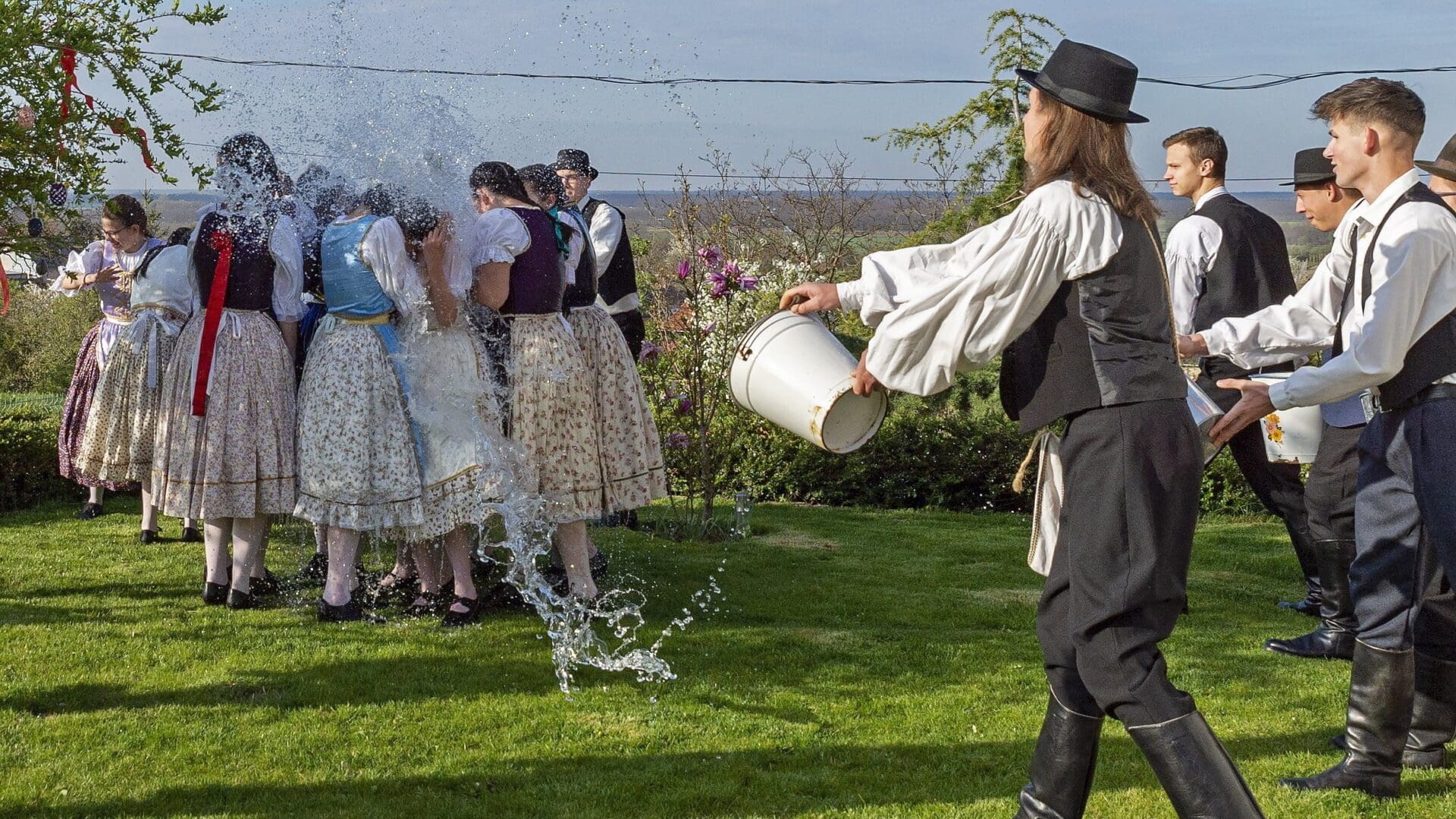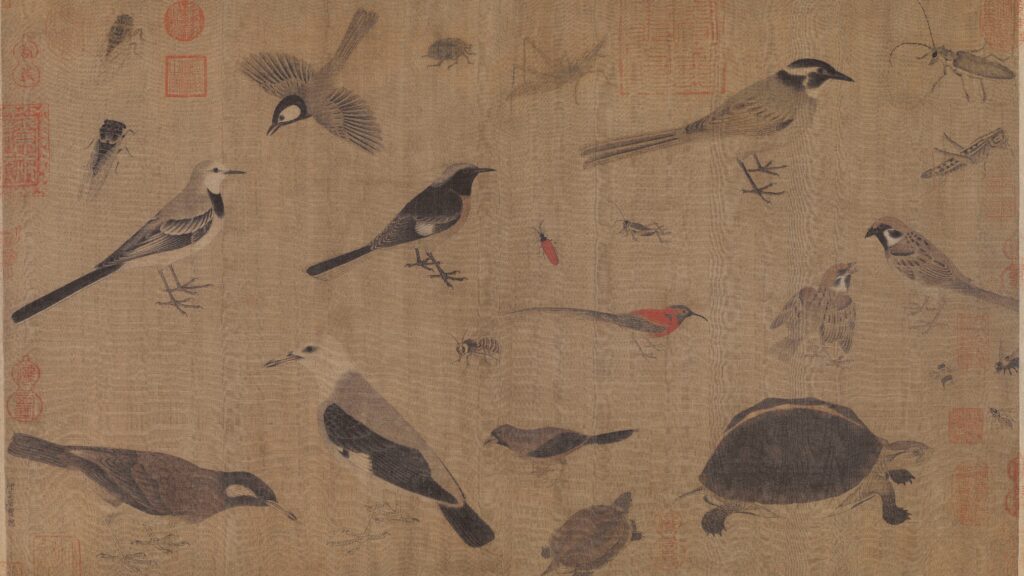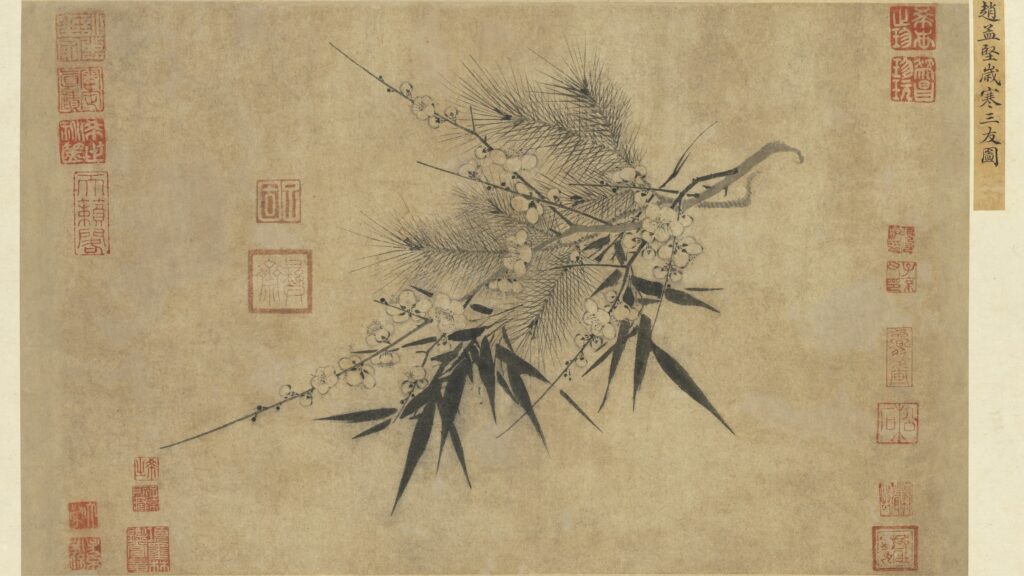Sprinkling water on women and girls is a Central European Easter tradition. On Easter Monday, boys and men pour or sprinkle water, or more recently, just cologne on females.
Fifty years ago, it was still common to use buckets of water, and the girls usually wore their best clothes. In Hungarian cities today, a more cautious form is practiced, where women are sprayed with perfume and boys have to recite a ’water sprinkling poem’ to earn a painted egg, chocolate or money. The tradition is not exclusive to Hungary, with sources tracing it back to the 14th century in what is now the Czech Republic, but the custom is also known in Slovakia, Ukraine and Poland.
In Hungary, written records of the folk tradition date back to the 17th century. In 1736, Péter Apor wrote in his book about Transylvania that commoners and nobles alike pour water on their daughters on Easter Monday.
Some believe that this tradition is linked to a fertility cult that is almost as old as mankind, while others hold that it refers to baptism.
Every year, Hungarian feminists speak out against the tradition on the internet. According to a left-wing news portal, a feminist blogger has just written this:
‘A lot of people today think that it is normal to spray someone with cologne or pour cold water on them, while they are being held down, even though they don’t want it. There are situations in life, however, when such behaviour would not be normal and would draw condemnation and consequences.’
The other important thing to know, according to the blogger, is that you cannot teach people how to give consent (for example, to sex, but this could include also the pouring of water, which many girls hate but may not dare to say) by only starting to instilling the idea at a later age. The blogger argues that the concept of consent must be taught from an early age.
Another feminist blogger argues that if we throw away the nice coating of tradition and religion, we arrive at the core of the custom,
which is male violence on women.
’Although some water sprinkling poems ask the girls whether they want to be sprinkled, the well-known custom does not care about consent. Of course, the situation is not as dire as in the case of the MeToo scandals, but even in a softer form, what we are facing here is violence.’
According to the writer of these lines, consent is a crucial concept, a fundamental Western tradition with strong Biblical roots that distinguishes our societies from, for example, Islamist societies. While extremists in Iraq and Afghanistan or Iran want to dominate women and their bodies, we in Europe know the concept of consent.
While some of the reservations regarding Easter-related folk traditions articulated from a female perspective can be appreciated, it is questionable whether it makes sense
to conduct a Bolshevik-style anti-tradition campaign against rural folk customs.
Of course, it is important that this Easter pouring of water in a traditional Hungarian family should be done with the consent of the girls. But it is pointless to pretend that there is any connection between the rape culture in the art world—as brought to light by the MeToo movement, which mainly affects the liberal film industry—and the fact that in rural Hungarian villages, boys pour cologne on a girl’s hair in exchange for chocolate eggs.
Perhaps we can manage to maintain a functioning society where rape is abhorred, but old folk traditions can still be held in respect.








